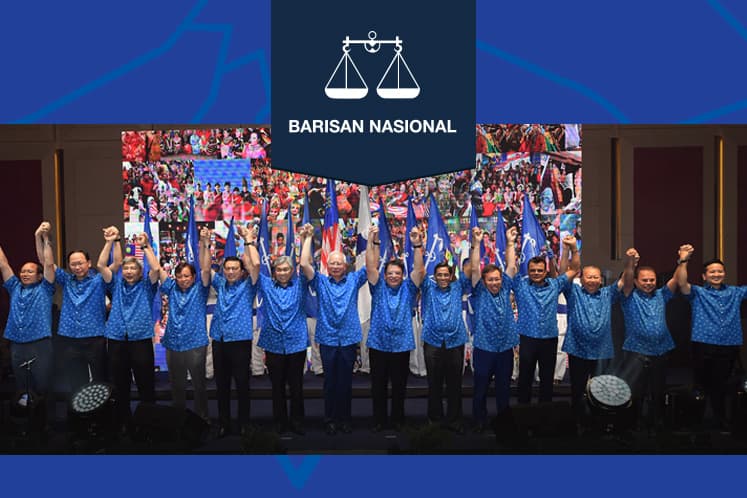
KUALA LUMPUR (April 23): The short-term economic benefits under Barisan Nasional’s (BN) election manifesto will do little to lift the bottom 40% income earners out of their predicament, says Universiti Malaya political economist Professor Edmund Terence Gomez.
"If you look at the B40, there are about 12 million people, which indicate great inequality in our system, which is a manifestation of the model that we are having,” said Gomez.
Noting that Prime Minister Datuk Seri Najib Razak had previously stated that he was presenting a new economic model that would address this issue, Gomez asked: “Why then do we still have B40 today?
“Why do we still give cash handouts to them rather than bring major structural measures to alleviate this B40 issue," he said at a roundtable discussion on the manifestos announced by political parties for the May 9 general election.
The event was organised by the Centre for Public Policy Studies of the Asian Strategy and Leadership Institute (ASLI).
Gomez also referred to Najib’s statement during the launch of the BN manifesto that the government has achieved 99% of what it has promised previously.
According to the professor, the only major improvement that had taken place was in public transportation.
"When he became prime minister in 2009, he talked about the government transformation programme, which was put in place to achieve Vision 2020, and also involving a number of things including removing us from the high middle income trap, reforming education, bringing an end to corruption and crime (which was very high), improving the public infrastructure system, and improving the rural infrastructure," he said.
"Now 10 years on, the only thing that I see that has changed in a major way, is that the public infrastructure in terms of transportation has improved. Otherwise as far as I know we are still stuck in the high middle income trap, still debating about our education system, and (still have) a lot of problems on corruption,” he added.
In particular, said Gomez, the BN manifesto does not address the issue of corruption.
“This is a serious problem and has happened in many firms, including Felda, 1MDB, Lembaga Tabung Haji, LTAT and Mara,” he said.
“This is completely different from what he promised us in 2009 to eradicate corruption," he added.
Turning to Pakatan Harapan’s manifesto, Gomez said it proposes to solve many of the major institutional problems that prevail in the country.
“It is actually quite a good manifesto. There seems to be a bit of populist policies like no more GST (goods and services tax). I am not convinced of the argument for replacing it with the SST (sales and services tax). I thought that needed more thought. I am not convinced that they can make up that shortfall (arising from abolishing GST)," he said.
Since the launch of their manifesto, Pakatan leaders have been explaining that the shortfall could be offset by eradicating government leakages.
"Of course, if there is political will, yes. There must be political will to stem the leakages. If you look at the scale of the scandals we have seen, the scale is just mind boggling.
“Now if you can stem such corruption, that could be a lot of savings for the government. But we cannot bank on that as a mechanism for a long-term response to public finance," Gomez said.
He, added, however, that there is still room for improvements in Pakatan’s manifesto in terms of addressing the high middle income trap and inequality.